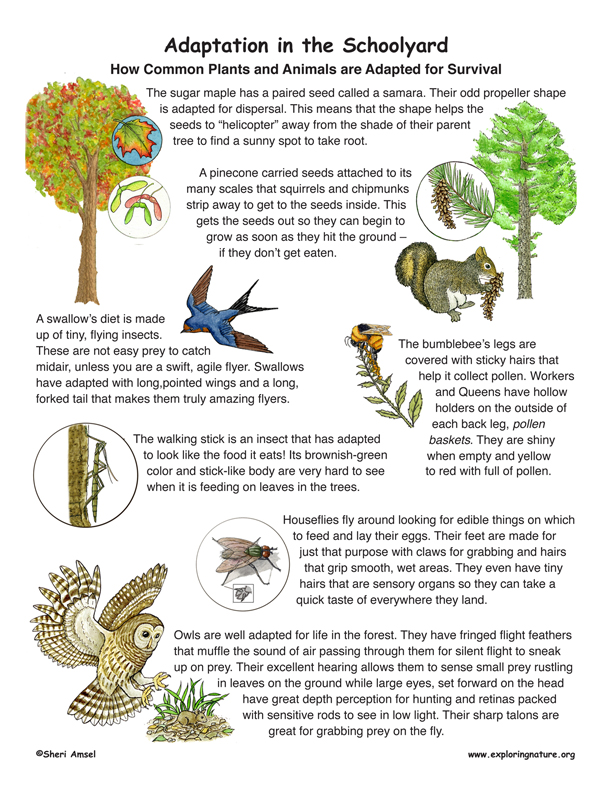

Grade 3 - 3-LS4 Biological Evolution: Unity and Diversity
NGSS Disciplinary Core Ideas
LS4.B: Natural Selection
• Sometimes the differences in characteristics between individuals of the same species provide advantages in surviving, finding mates, and reproducing. (3-LS4-2)
LS4.C: Adaptation
• For any particular environment, some kinds of organisms survive well, some survive less well, and some cannot survive at all. (3-LS4-3)
Performance Expectations Students who demonstrate understanding can:
3-LS4-2. Use evidence to construct an explanation for how the variations in characteristics among individuals of the same species may provide advantages in surviving, finding mates, and reproducing. [Clarification Statement: Examples of cause and effect relationships could be plants that have larger thorns than other plants may be less likely to be eaten by predators; and, animals that have better camouflage coloration than other animals may be more likely to survive and therefore more likely to leave offspring.]
3-LS4-3. Construct an argument with evidence that in a particular habitat some organisms can survive well, some survive less well, and some cannot survive at all. [Clarification Statement: Examples of evidence could include needs and characteristics of the organisms and habitats involved. The organisms and their habitat make up a system in which the parts depend on each other.]
When you research information you must cite the reference. Citing for websites is different from citing from books, magazines and periodicals. The style of citing shown here is from the MLA Style Citations (Modern Language Association).
When citing a WEBSITE the general format is as follows.
Author Last Name, First Name(s). "Title: Subtitle of Part of Web Page, if appropriate." Title: Subtitle: Section of Page if appropriate. Sponsoring/Publishing Agency, If Given. Additional significant descriptive information. Date of Electronic Publication or other Date, such as Last Updated. Day Month Year of access < URL >.
Amsel, Sheri. "Adaptation in the Schoolyard Poster" Exploring Nature Educational Resource ©2005-2024. April 3, 2024
< http://exploringnature.org/db/view/3657 >
